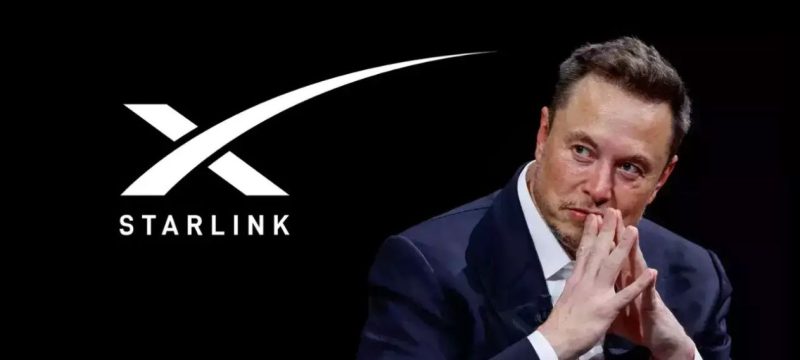Elon Musk’s Starlink has been granted a license by India’s telecom ministry to begin commercial operations in the country, according to two sources familiar with the matter. This marks a significant milestone for the satellite internet provider, which has been eager to enter the South Asian market.
The approval is a positive development for Musk, especially amid ongoing tensions with former US President Donald Trump that jeopardize SpaceX’s $22 billion worth of government contracts and space initiatives.
Read more: Islamabad’s US Envoy Praises Starlink for Advancing Digital Connectivity in Pakistan
Starlink becomes the third company authorized by India’s Department of Telecommunications (DoT) to offer satellite communication services, joining Eutelsat’s OneWeb and Reliance Jio, which have also received similar licenses.
Neither Starlink nor the Department of Telecommunications immediately responded to requests for comment. Due to the sensitive nature of the issue, the sources spoke on condition of anonymity.
Earlier this year, Musk met Indian Prime Minister Narendra Modi during a visit to the US, where they discussed Starlink’s launch plans and India’s security concerns related to the project.
Although Starlink has cleared a major hurdle by securing the telecom license, it still awaits a separate approval from India’s space regulatory body, which sources say is near completion. Additionally, Starlink must acquire spectrum from the government, establish ground infrastructure, and pass rigorous security tests before it can officially launch services.
One source noted that this process will take several months and is expected to be thorough, emphasizing that Starlink can only begin selling its services once it obtains full clearance from Indian security officials.
In a notable move in March, Indian telecom giants Jio and Bharti Airtel announced partnerships with Starlink to retail its equipment, despite continuing to compete with Starlink in broadband service offerings.
There had been months of disagreements between Musk and Mukesh Ambani’s Jio regarding the allocation of satellite spectrum, with the Indian government ultimately siding with Musk’s position that spectrum should be assigned rather than auctioned.
In May, India’s telecom regulator proposed a 4% annual revenue fee for satellite service providers, a move criticized by domestic players who argue that the rate is too low and harmful to their businesses.
Industry analysis by Deloitte forecasts that India’s satellite broadband market could reach $1.9 billion by 2030, making it a highly attractive sector for companies like Starlink and Amazon’s Kuiper, which is still waiting for regulatory approval.





